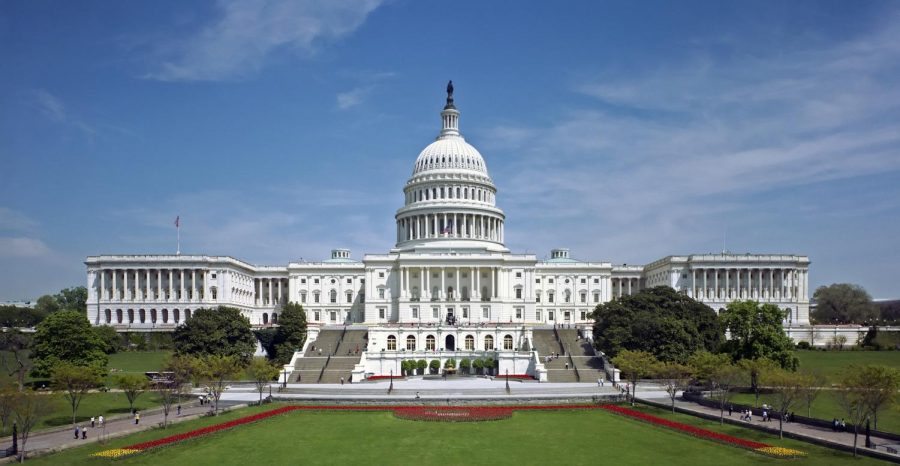Bowles: EARN IT Act is coming for your privacy rights
United_States_Capitol_-_west_front.jpg: Architect of the Capitolderivative work: O.J. / Public domain
The EARN IT Act states that technology companies have to earn Section 230 protections rather than being granted immunity by default, as the Communications Decency Act has provided for over two decades.
April 2, 2020
Currently postponed due to Congress’s focus on the coronavirus, the EARN IT Act is a nightmare for all U.S. citizens who care about their rights. Why? Because it seeks to end encryption without ever explicitly mentioning the word itself. Encryption is the method that protects your online messages and information from being seen by unauthorized parties. The EARN IT Act essentially is a backdoor to ending it.
The reason? To prevent child pornography. Does Congress really expect us to buy that lousy excuse? I’m sure it will be just like how the Patriot Act was only used to combat terrorism, not promote illegal mass surveillance by the National Security Agency.
The EARN IT Act would create a “National Commission on Online Child Sexual Exploitation Prevention” to develop “best practices” for owners of Internet platforms to “prevent, reduce, and respond” to child exploitation. However, these “best practices” would be approved by Congress as legal requirements: if a platform were to choose to not comply, it would lose essential legal protections for free speech.
Even scarier? Attorney General William Barr would be the head of this task force. Not only is he an outspoken critic of encryption, he specifically feels it is necessary to combat terrorism (hello PATRIOT Act), and get this, the biggest lost cause in history, the War on Drugs.
“If our law enforcement agencies do not recover the ability to gain lawful access to encrypted communications and platforms, the prospects of successfully prosecuting the drug war by traditional law enforcement means are dim,” Barr said.
How convenient that a bill looking so innocent by labeling itself a bill about child pornography actually would install the exact mass surveillance and authoritarian policies AG Barr and the Trump Administration promote.
Now don’t get me wrong, child pornography is absolutely something that needs to be addressed, and I do not in any way possible mean to detract from those affected by its prevalence.
However, that does not excuse this sneaky attempt by the U.S. government to end encryption, and by extension, your right to privacy online. It would potentially grant the federal government the right to access your medical, financial and personal data.
Did they just forget about the 4th Amendment that guarantees citizens the right to privacy? Sure seems like it.
Paul Rosenzweig, a top Department of Homeland Security official during the George W. Bush administration, sums up this act succinctly.
“The bill is targeted at child exploitation only as a means of achieving the broader goal of government surveillance generally,” said Rosenzweig.
I promise you, this bill won’t help stop the spread of child pornography. It will only be used as a guise to slowly strip away the privacy rights of U.S. citizens. If you want your rights to remain intact, I urge you to call your congresspeople as soon as the debate on this act reopens and urge them to reject this mockery of the Constitution itself.









